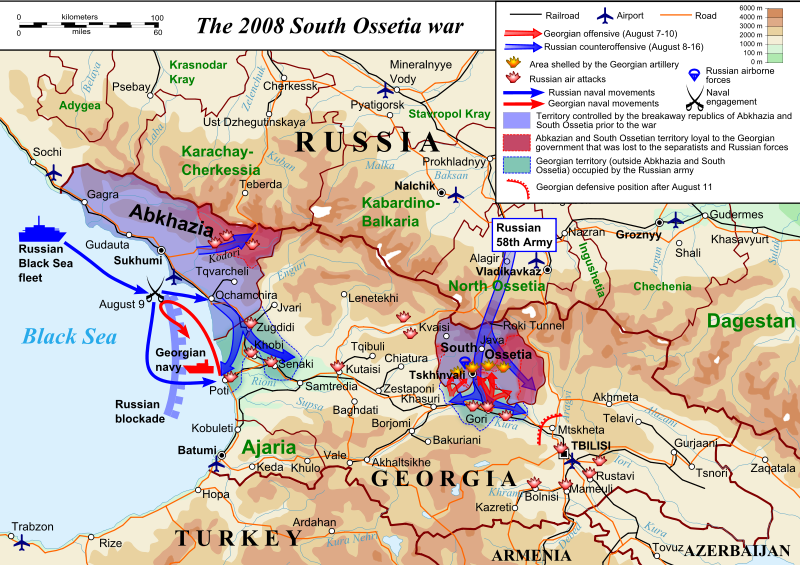In a recent article in the Moscow Times, Dmitri Trenin, Director of the Carnegie Center in Moscow, offered some wise advice which could solve the “frozen conflicts” of Abkhazia and South Ossetia.
 Trenin points out that the current situation is unsatisfactory to all the parties involved. It appears unlikely that additional countries will recognize the independence of Abkhazia and South Ossetia, and the latter could not function as a truly independent entity. Formal absorption into Russia would create more problems that it would solve, and yet the people in the two enclaves are not likely to agree to Georgian sovereignty. Trenin suggests that a negotiated settlement would benefit all parties. It would include, in the case of Abkhazia, the transfer of the Ghali district to Georgia in return for Georgian recognition of Abkhazian independence. In the case of South Ossetia, he recommends a status similar to that of Andorra, with a condominium arrangement.
Trenin points out that the current situation is unsatisfactory to all the parties involved. It appears unlikely that additional countries will recognize the independence of Abkhazia and South Ossetia, and the latter could not function as a truly independent entity. Formal absorption into Russia would create more problems that it would solve, and yet the people in the two enclaves are not likely to agree to Georgian sovereignty. Trenin suggests that a negotiated settlement would benefit all parties. It would include, in the case of Abkhazia, the transfer of the Ghali district to Georgia in return for Georgian recognition of Abkhazian independence. In the case of South Ossetia, he recommends a status similar to that of Andorra, with a condominium arrangement.
It is most unlikely that, in its present mood and with its present president, Georgia would agree to such major concessions. But when it sinks in that the reabsorption of these territories by force will not be permitted, Georgians may begin to understand that only concessions similar to those Trenin recommends are likely to lead to the possibility of repatriating a significant number Georgian refugees from these areas. If President Saakishvili could come to that understanding, he might be the person to lead his country to a solution. That is a big IF, but we should not forget that it was General de Gaulle who led France out of Algeria, and Richard Nixon who recognized Communist China and initiated détente with Brezhnev.
Another if: If Secretary of State Clinton could encourage and broker a solution such as this, it would go further than a “reset.” It would produce a new and more productive version of the software that governs U.S.-Russian relations.
